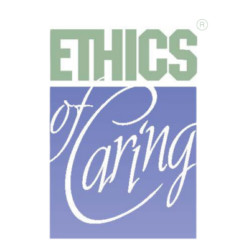“. . . to work closely with many people, who are often experiencing adversity. I hope that I have been able to make a difference for some of them. Someone once described nursing as having the privilege of witnessing both the beginning and the end of life- by opening the eyes of a newborn and gently closing the eyes of a dying man. I am fortunate to have had that privilege.”

Christine Grady, MSN, PhD
Plenary: “A Foundation of Moral Strength”
Christine Grady MSN, PhD, Chief, Dept of Bioethics at the NIH Clinical Center was interviewed by Heather Fitzgerald, DBe, MS, RN, HEC-C the Director, Office of Professional Fulfillment & Resilience at Stanford Children’s Health and a NNEC Planning Committee Member.
Click to Share this 2024 Spotlight!
Q:
The theme for this conference is “Claiming Meaning and Purpose in Nursing: Why It Matters.” From your perspective, what is the meaning and purpose of nursing? How does this theme resonate with your current research or practice?
I think of nursing as a set of decisions, actions, relationships with individuals, families, or groups with the goal of promoting or optimizing health, preventing and treating illness, and caring for those who are ill or suffering in a variety of contexts. Contexts include patient care in hospitals, clinics, long term care, schools, communities, etc., but also advocacy, research, policymaking, leadership, health systems work, education, and more. Nurses exhibit qualities such as compassion and empathy and the competence and judgment to provide quality care, advice, and assistance, often under challenging circumstances.
I feel very fortunate to be a nurse, doing so has given me the opportunity (and privilege) to establish meaningful relationships with many others, to continue to learn and develop skills and knowledge, and to work closely with many people, who are often experiencing adversity. I hope that I have been able to make a difference for some of them. Someone once described nursing as having the privilege of witnessing both the beginning and the end of life- by opening the eyes of a newborn and gently closing the eyes of a dying man. I am fortunate to have had that privilege.
For many years now, I have been in a department of bioethics. In that role, I conduct bioethics research, teach bioethics fellows and healthcare professionals, and provide both clinical and research ethics consultation to patients, families, researchers, clinicians and others. I work closely with a multidisciplinary group who bring a variety of perspectives to the table. I have often remarked that my training and experience as a nurse has given me an edge over some of my colleagues in that as a nurse, I have gained a special appreciation for the clinical complexity, the uncertainties, and the human experiences that are common in the work we do.
– Christine Grady
Q:
In addition to core ethical concepts and principles, clinical ethics is about relationships and values. How does nursing’s relational framework influence the ability to fulfill ethical obligations?
I think the relational framework is the essence of nursing, and fundamental to fulfilling our ethical obligations.
– Christine Grady
Q:
Are there ethical dilemmas or questions that are trending in your line of work right now?
As per usual, there are many. My work probably differs from many other nurses since I am deeply immersed in research ethics questions. A current issue that I am spending a fair amount of time on is the issue of post-trial responsibilities. Persons who participate in interventional clinical trials who benefit from the intervention, usually understandably want to continue to receive it. However, this is not guaranteed and can sometimes be challenging after a trial ends. There is usually a wait until a product is commercially available, other times the sponsor may decide not to pursue the product, or the participant does not have insurance to cover it. This issue has received some attention in the last decade or so and the research community has made some strides in creating mechanisms for assuring that participants can access beneficial interventions, but there are many gaps.
Two other research ethics issues that I continue to focus on are processes of informed consent for research, and the ethics of using incentives for research participation.
– Christine Grady
Q:
Tell us where you find meaning and purpose in your professional life and also in your personal life?
I find meaning and purpose in the relationships and connections that I am able to form in my work, with patients and families, as well as with other clinicians, researchers, colleagues, collaborators, fellows, and students. In addition to relationships, other sources of meaning and purpose for me in my professional life are continued learning and opportunities to use the skills and knowledge I have to try to make a difference in the world. I also find meaning and purpose in my personal life through relationships with my family, friends, neighbors, and community.
